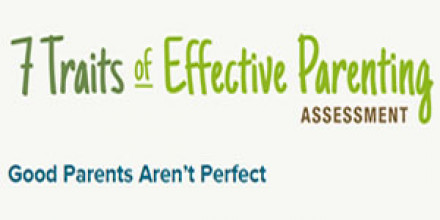Excerpt:
Mrs. Shelia Erwin: People used to say, “Is there anything that you would have done differently with your boys?” Only two things: I would’ve been the perfect mother and they would’ve been the perfect children.
(LAUGHTER)
Shelia: And that did not happen. That did not happen on either count.
End of Excerpt
John Fuller: Shelia Erwin joins us today on Focus on the Family. Your host is Focus president and author Jim Daly. And thanks for joining us. I’m John Fuller.
Jim Daly: John, I don’t know about you, but I’ve so enjoyed watching my two boys kind of grow into unique people, right? They’re from the same family, but one is more introverted, one’s more extroverted. Trent is very focused on things. He can zero-in and concentrate strongly on something. He definitely has learned how to be in a social setting and speak to people, but it’s not where he likes to be. And then Troy is nothing but a social guy. He loves people. He’s the friend of friends, you know. He’s just enjoying people so much. And it’s just great to see how different they are, yet moving in the right direction.
John: Yeah. And as you know, we have six.
Jim: (Laughter).
Shelia: Whoa.
Jim: And those kids are all so different. And I don’t know how, but we’ve – we’ve got the same thing. A lot of different personality types. I’m grateful that they all get along…
Jim: (Laughter) That’s a good thing.
John: …As adults. And that a lot of them are creative. They have their own little unique places to be creative. But it’s been fun to watch.
Jim: Well, God has a purpose and plan for each of your children, too. And He wants you to mold and shape your children in the way that they need to go and especially in following Christ. That’s the main thing, right?
John: Mm hmm.
Jim: You might notice that your daughter has a knack for talking to people like I just mentioned, or maybe your son has a deep awareness of justice or whatever it might be. You need to develop that, um, to help us learn how to do that as parents so we can better prepare for that journey is our guest today, Shelia Erwin. And you’re going to learn a lot about how to raise up dreamers.
John: Mm hmm. Yeah, Shelia is the mom of the film-making duo, the Irwin Brothers. And, uh, you might have seen some of their movies, including the recent hits like I Can Only Imagine. And then more recent film I Still Believe. And Sheila has written a book called Raising Up Dreamers: Find and Grow Your Child’s God Given Talents. And we have that here at focusonthefamily.com/broadcast.
Jim: Shelia, it’s great to have you here at Focus on the Family.
Shelia: Thank you. It’s great to be here.
Jim: Now, it’s kind of fun. Uh, we’ve watched your son’s career kind of blossom in the recent years. And their movies are certainly a breath of fresh air…
Shelia: Thank you.
Jim: …For us in the Christian community. We love those movies. And I hope they keep making many, many more. But speak to that recognition. When they were even little boys, you could see they had some desire to do something unique, right?
Shelia: Oh, yeah. Jon was 12, Andy was 16, when they came to their father and said, “We really believe God wants us to make movies, Christian movies.”
Jim: Now, how did you respond? Let’s make sure parents get this part right. Because, I mean, I – to be honest with you, I might have said, “Oh, that’s good. Here’s a, you know, iPhone. Go use it in the backyard.” And then you think, that’ll be a fad.
Shelia: (Laughter) Yeah. Well, there had been some fads in their lives.
Jim: (Laughter).
Shelia: Uh, and so, you know, you just dream with them and wait to see what God is going to do.
Jim: So, that’s interesting right there, though. You don’t give up on their imagination…
Shelia: Mm mmm.
Jim: …So never squelch that desire.
Shelia: Oh, yeah. Absolutely.
Jim: Especially in those early years when they want to try something.
Shelia: Yeah. Hank was the one that they came to. So, I got – I got to get…
Jim: That’s dad.
Shelia: Yeah, dad. I got it next. So, that was kind of good.
Jim: (Laughter).
Shelia: But, uh, Hank was great. He told him two things that day. He said, “Boys, um, it’s gonna take 20 years for you to be a success. If you’re willing to give 20 years of your life to this, then so be it.”
Jim: How did they respond?
Shelia: They said, “Okay.” Uh, Hank – Hank said…
Jim: Oh, man.
John: And where – where did you come up with the 20 years?
Shelia: He just felt like that was kind of the – he’d seen that in other careers with other people as well. And it was gonna take some time in other words.
John: Hmm.
Shelia: Not necessarily just 20 years. Although, um, I Can Only Imagine came out the 20th year.
Jim: Yeah.
Shelia: And it was their breakout movie. And so, that was really sweet of the Lord. So, he told him that and “You’ve got to be willing to give your life to it.”
Jim: That’s always good. Um, you suggest raising the child God has given you…
Shelia: Yes.
Jim: …That infers uniqueness and knowing your child’s bent. I think the Scriptural reference would be, know your child’s bent and “raise them up in the way in the way he should go.” How did that apply for you?
Shelia: Well, uh, their uniqueness our boy, like you said about your sons – our sons are so very different. Andy really is the artist. He has the artistic temperament. And Jon’s more the business kind of, you know, man. He can sell ice cubes to Eskimos. Uh, and so, they make a great (unintelligible), but they’re very, very different. But Andrew – I know every mom says their child is a genius, but Andy really was.
Jim: (Laughter).
Shelia: You know, Andy started talking at seven months.
John: Oh, wow.
Jim: Wow.
Shelia: Yes. He had a seven word vocabulary by that time. When he was a year old, he was making sentences.
John: Hmm.
Shelia: At 15 months, he was conversational.
Jim: Oh, my goodness.
Shelia: Um, and he could read it, too. So, he – and by the time he was three, he could start at “A” and give you a Bible verse for every letter of the alphabet all the way through “Z.”
John: Oh, my.
Shelia: And so, he was very, very smart. And then Jon came along and Jon was struggling. He started kindergarten not being able to recognize his ABCs. I thought he had dyslexia. I really did. We found that he had ADHD eventually when he was in first grade. That’s another story, a long story. So, I had to really realize that they were so different even in an educational type thing. And so, instead of presenting it to Jon as a difficulty, we said it was a gift. And so, that God had given him a unique way of learning and he was going to use it and he has.
John: Hmm.
Shelia: He really has. Jon couldn’t do what he does…
Jim: Good for him.
Shelia: Uh, and so, I think is how you approach it with your children. But I think often we see other children and we think, oh, I wish my children were like that or I wish this child was like this, or I don’t like this about my child, or I do like this about my child. You know, that kind of thing. But to raise the ones that God gave you. He gave them to you uniquely. Not only did He give them to you, but He gave them the right mother.
Jim: Yeah. You know, let me – let me mention something because in the book you – you spoke about the building of a set in your garage. So, some people are going to hear this and go, “Oh, okay. Well, no – no wonder the boys have done well. Mom was really engaged. Dad was really engaged.” Speak to that commitment. I mean, you built a movie set in your garage. Now, first of all, I wonder how you found the room…
John: (Laughter).
Jim: Because it wouldn’t work in my garage.
(LAUGHTER)
Jim: But – but, uh, you know, there is a certain level when I look at it. I don’t know that it’s unique. It strikes me as maybe unique support that you and Hank provided your boys. But if not, tell us, because that gives the rest of us hope that we don’t have to be super great parents (chuckling) in order to achieve this. But what’s that formula look like?
Shelia: Well, and I really don’t want people to look at my book and think, “Oh, if we do it like the Erwin’s, we’re going to get film producers or film directors.”
Jim: Some people might think that.
Shelia: They will. Uh, the uniqueness of your child and what God’s called you to do as far as I was an art major. Uh…
Jim: Ah, okay.
Shelia: You know, and so, the artistic type things was fun for me. And I was the artistic child that drove my mother crazy…
(LAUGHTER)
Shelia: …You know, because she wasn’t and, you know, so that got both sides of that. But, uh, with the set, it was just a fun thing that we did. We were in ministry, didn’t have a lot of money. And so, I went out and bought some plywood and some sawhorses and in the back of our garage, we had a section that we weren’t using and – and actually we lived on a slope that our – to get down to the driveway you had to go straight down. So, you didn’t really get down to the garage. You didn’t really want to put your car there.
Jim: (Laughter).
Shelia: And so, we used it more storage. But we set it up and I started it and then let them help me finish it. And we – we did all the Star Wars things and they played with it for – forever and ever and loved it. And Andy said that was beginning of storytelling for him.
Jim: Ah, yeah.
Shelia: It really sparked his imagination. And I ask him, I said, “Why did that mean so much to you?” And he said, “Because you stepped into my world.”
Jim: Oh, wow.
Shelia: And so, I – I think that as moms, whether you’re creative or not, be careful to step into their world and be a part of what they love. Not trying to get them to love what you love.
John: Hmm.
Jim: Yeah.
John: Shelia, I’m struck by something you said a few minutes ago and that was that you told Jon that he learns differently and that that’s a gift. Um, I’m just thinking there are parents struggling with that…
Shelia: Hmm.
John: …Because “I don’t see it as a gift. I see it as a deficit.” So, connect that to maybe the child who isn’t creative, and I see that as a deficit. How do I help spark a dream?
Shelia: Yeah. Well, every child’s different. And God’s got a plan for that child and for that family. We have a thing in our house that says “every family has a story” in our den – big plaque thing. And so, for Jon, it became – because Jon is not so directly focused. Jon can be focused on five things at one time.
Jim: (Chuckles) That is unique.
Shelia: You know, and – and he has to. He needs to be because of what he does. Uh, and so, God – I think approaching it that “we are fearfully and wonderfully made.”
John: Hmm.
Shelia: Whether if God gave us this disadvantage, He’s going – like Paul said, “I must decrease, and He must increase” anyway. So, it’s all about Jesus and him taking what He has put into us. So, we didn’t want Jon to think, “Oh, you’re – you know, you’re not – you know, this is gonna be hard and you’re not gonna make it.” And – and now we did bring Jon home to homeschool him. Best thing we ever did for Jon, because by second grade, he was reading grade level and making A’s. I mean, he’s – because Jon has an extremely high IQ and a photographic memory. But he was really struggling with the classroom and so…
Jim: Didn’t like the structure.
Shelia: Well, he just couldn’t cope with the structure.
Jim: Yeah. Right.
Shelia: Because, like, if they were having a reading group over here, he was over there. And if there was a robin outside the window, he’s over there. And, you know, and so to just focus down and do his work was hard, was difficult for him.
John: Hmm.
Shelia: So, bringing him home, he went from reading – when we tested him at the beginning of second grade, he was reading second grade fifth month. By the end of second grade, just from being home and me being able to focus in and hone in on his – his ability to learn, he was reading eighth grade, fifth month.
John: Hmm.
Jim: Wow.
Shelia: So, for us – but I think if we approach difficulties – you know, my Bible teacher always said, “That difficulties are – are opportunities in work clothes.” So, if we approach it that way, that, okay. God’s given us this. It’s not, you know, what we would’ve chosen, of course, but it’s not a bad place either.
Jim: Sure.
Shelia: It’s your place.
John: Mm hmm.
Jim: You know, one of the most critical things that you mentioned in the book is the need to develop your child’s faith.
Shelia: Hmm.
Jim: And you mention helping them understand sin. You know, that it’s important to teach kids about sin and what it is. That seems like such a far concept now because we’re giving medals to everybody. “You’re awesome. You’re great.” And that’s all good. It builds up one’s…
Shelia: Oh, sure.
Jim: …Self-worth and – and self-esteem and that has a value. You need to be rooted in that, too. But talk about sin and saying, “Hey, son, daughter, this is a part of life. Sin is real.” How did you approach that?
Shelia: Well, the way the Lord started me out on that quest was when I was principal at Scofield Christian School in Dallas.
Jim: So, you were a principal?
Shelia: Yes.
Jim: Okay. Now it’s all fitting in to place.
(LAUGHTER)
Jim: Okay. That’s the secret.
Shelia: And one – and one of my students was a precious child but had an argumentative spirit. If I said, “The sky was blue.” She’d say, “It’s really kind of turquoise, isn’t it?” Just that…
Jim: Yeah. We all know adults like that, by the way.
Shelia: Yeah. And so, her parents – I brought the mom in, which was our custom in our school. And I talked with her and she wanted examples. She took examples. And then she said, “I’ll get back to you.” She got – her husband was getting his doctorate at Dallas Seminary and so he wasn’t there that day. But she said as she went over what I’d said with her husband, he began to weep quietly. And he said, “It’s my sin.” He said, “I have an argumentative spirit.” And so, he dealt with that. And then they brought the daughter down and said, “Sweetie, this is what’s going on. And Dad’s confessed his sin before the Lord. But now you need to deal with your sin.” And I thought after she called me back and told me – she said we had revival in our home. And so, she asked me to with her daughter if I saw her being argumentative, to just go and touch her shoulder and say – just not say anything, just touch her shoulder. And she should stop arguing and if she doesn’t let me know. Um, and she called it sin. And I thought, oh, oh. Sin. It’s sin. It’s not a bad choice. It’s not a whatever. It’s sin. That’s what God calls it. And so, I wanted to prepare my children so that they knew they were sinners in need of a Savior. And so, we call disobedience what it was – sin. And we dealt with it that way.
Jim: Hmm.
Shelia: And then when they came of age, they understood that they were sinners. It wasn’t like, “Oh, you mean I’m a sinner?” Yeah, you are a sinner and you need a Savior.
Jim: Boy think out how much that is missed today.
Shelia: Oh.
John: Hmm.
Jim: I mean, we don’t even think in those terms unfortunately.
John: We’re hearing today from Shelia Erwin about her book, Raising Up Dreamers. And we have copies of that here at the ministry. Call 800, the letter A and the word FAMILY. Or stop by focusonthefamily.com/broadcast.
Jim: Sheila, I really understand the encouragement side. I think I tend to be an encouraging parent. Um, I don’t know that I’m as good, uh, getting the boys through disappointment.
Shelia: Hmm.
Jim: And so, how – how do you strengthen both of those areas? So, you’re a good encourager, yet at the same time, you can also help them through disappointment or maybe when that disappointment yours as a apparent.
Shelia: Sure.
Jim: You know, I played – I played high school sports. I thought, “Mom, I have two boys.” Which I did. The Lord was, you know, gracious. They were athletic looking…
(LAUGHTER)
John: Yes.
Jim: …But they just didn’t like football. I mean, you know, I was a football player. And – and that’s okay. I really had to bite my lip. But I guess it was a discouragement a little bit for me, but I had to realize they’re different people. They’re not me. I lived and breathed it. For them is like, “Ah, it’s not that important to me, Dad.” Ah!
Shelia: (Laughter).
Jim: But how do you manage that as a – as a parent?
Shelia: Yeah. Well, it’s not your dream. It’s theirs.
Jim: Yes.
Shelia: Uh, and – and so, that’s one thing you really have to learn.
Jim: Mm hmm.
Shelia: And to – to let it be their dream between them and God and not try to push anything on them as far as what you want them to be or to do and, you know, be a wise parent not to do that. Uh, disappointment – uh, we taught our boys that failure is a part of success. And you’re going to fail. There are going to be times when you fail and you’re going to have to learn to deal with failure. That’s a very important thing before the Lord. We taught them also that all things were together for the good. Uh, we taught them to thank the Lord in all things. So, I think learning to fail is very important and learning to get back up. Failure is not the end. Failure is a learning process. Hank was so good with the boys about saying when they would disobey, or they would whatever. He was great about saying, “What’d you learn?”
Jim: Yeah.
Shelia: “Tell me what you learned, son.” And so, teaching them to learn from their mistakes, to get up, to get back up and get back in the fight, you know, and figure out what they’re going to have to do. And I know Andy did a podcast that was on during the quarantine with a group of Christian Actors Guild out in California. It was excellent. But he was talking about that. Yes. Was it a gut punch when your new movie came out and it was number one in the nation? Uh, I could – uh, you know, I Still Believe was number one on Friday night and on Monday morning they closed all the theaters down.
Jim: Yeah. The timing.
Shelia: And – and it was a gut punch. And what do you? Do you just sit there and wallow in your pain or do you say, “Okay, how can – what can we do now?”
Jim: Yeah.
Shelia: Uh, you know, you go back to Lionsgate you say, “How can we get this into people’s hands?” And they figured out ways to get the movie and it’s broken even up now and it’s making some money. Uh, not what they’d hoped, but what do we do when we get that gut punch? Do we just sit down and wallow in it or do we get back up?
Jim: Let me also ask you. And what I love about what you’re saying, Sheila, is this is not rocket science, but sometimes we get so disoriented as parents, we don’t remember to do the basic things.
Shelia: Absolutely.
Jim: The Scripture even used – what wonderful things. If your kids can leave the home just knowing to trust God in all things, to be grateful in all things. Those are wonderful attributes right there. If they really can catch that and leave home as you launch them just with those handful of wonderful truths. Another aspect for you is prayer and the importance of prayer. How did you and Hank manage that in the home?
Shelia: Well, we prayed with our children and, uh, we taught them that God did the impossible. And we saw Him do the impossible over and over and over again. And so, we taught them that God could do that so that they believed in prayer. We had a prayer altar and it was I – was our big coffee table in the den. And we all gathered round and Hank would always say, “What needs do you have?” And we would pray about those specific needs and see God meet those specific needs. Uh, as the boys saw that God really could do that. And how encouraging that could be for them to learn to pray. And then we prayed for them, not just with them. We prayed with them, but for them as well, because we believe that God is a transforming God. You can’t change your child’s heart.
Jim: (Laughter).
Shelia: You can’t.
Jim: Hold it. Mom, Dad, did you hear that? (Chuckles)
Shelia: You can’t change your child’s heart. They had to sit in every seat you sat in to get where you are spiritually. They have to have a committed relationship to Jesus Christ. They’ve come to know Him as Savior. They have to come to know Him as their all and All-in-All. They have to come to know Him is their Comfort. They have to know Him the same way you do. And that was one of our quotes in our home, was “To know Him and to make Him known.” And we had it in big letters in our living room on the wall. “To know Him and to make Him known.” And so, um, yeah. It’s spiritual and moms, can I say this to you? You have to know the Word of God. You’ve got to know it if you’re going to encourage it properly if you’re going to be there for your child, you’re going to know the verse. You’ve got to know what God’s Word said. So, you need to be in a Bible study. You don’t need me to neglect your faith. If, you know, I remember a young man that went to get his driver’s license, or a permit and he went in and he took his test and passed it with flying colors. It was only one other young man in the room with him. They walked out. As they were walking out, the other young man said, “Well, I failed.” He said, “How did you do so well on the test?” And he said, “Well, I studied the manual.”
Jim: (Laughter) Right.
Shelia: He said, “You mean there’s a manual?”
Jim: Huh.
Shelia: He had not looked at the manual at all. He didn’t even know there was one. I think that’s what we’re doing in the church today.
Jim: Hmm. Wow.
Shelia: We say there’s no manual for parenting. Yes, there is. It’s the Word of God.
Jim: That’s good.
Shelia: And it’s there for everything you need. Everything we need for Godly living…
Jim: Yeah.
Shelia: …Is in that Book. And you’ve got to teach it to your children.
Jim: Sheila, let me ask you. Jon and Andy, they faced some obstacles when they released, uh, October Baby. Take us back to that. There’s a great movie, October Baby.
Shelia: Thank you.
Jim: It was a pro-life movie. Again, these guys are doing some cutting edge things in the culture that very different.
Shelia: Yeah.
Jim: And these are your boys, your little boys.
Shelia: (Laughter).
Jim: But what did they face? How did they – how did they, you know, triumph over that?
Shelia: Yeah. After the movie was made, it was a very low budget movie. And – and very much everybody was involved in doing whatever they could do to get everything done for that movie. Uh, my mother actually gave them the first one third of the budget, uh – uh, Nana.
Jim: (Laughter).
Shelia: Jon said, “I have no shame. I went to my Nana.” Uh, but they got it made. And it was – it was beautiful. It was a really fantastic movie. They had – there’d been some promises made that they would put it in the theaters, uh, and the studio that had made those promises backed out, uh, because of the content. They said, “We can’t touch this 10 foot pole.” And so, they were left with what do we do? Did we – the first thing they did is they went to prayer together and said, “God, did we miss here You? We really thought You wanted this in the theater.” They were told by this major studio to just put it on DVD and hope you can make your budget back. Um…
John: And this was a very pro-life film.
Shelia: Pro-life movie.
Jim: Yeah. That was the problem.
John: Yeah.
Shelia: It was the story of a young woman who was an abortion survivor.
John: Mm hmm.
Shelia: Based on someone else’s story, not her story, but based on the fact that she was a – they’d found – found that story to be true and done a great deal of research on that. It’s a great movie. One of – one of my favorites that they did. Um, but anyway, they wouldn’t touch it. And so, they went to the Lord and said, “What do we do? We don’t know what to do.” And so, um, they said, “We really believe that God wants this in the theaters.” As Andy went back to finish editing the movie, Jon went out to raise $2,000,000 in two weeks, which God did. They’d seen God provide over and over and over…
Jim: Hmm. That’s so good.
Shelia: …In their young lives and God – God provided the movie. It was in the – was in the theaters, but not before God took them to the end of the – of things, uh, as well, financially for them. And so, but the next day was when God began to bring that money in, and they began to get a paycheck. God did some wonderful things in that last – those last moments.
Jim: 10 to 75 cents. Wow
Shelia: 75 cents in their checking account.
(LAUGHTER)
Jim: There’s a lesson.
Shelia: And so, they – they trusted God. And that movie was in the top 10. That little movie that could in 300 theaters. You know, God just did miraculous, miraculous things with that little movie.
Jim: Sheila, in the book you mention “but God moments,” I think I kind of understand what that means. But what were you getting at?
Shelia: Well, I think when we get to a point, you know, that we don’t know what to do, but God shows up in miraculous ways, in wonderful ways. And so, that’s what but God moments that He brings along for us to walk in. It can be almost a miracle type situation. Or it can just be as He maneuvers and manipulates our circumstances to get us where He wants us to be. That was what was so fun about going back and writing this book. Seeing how many but God moments there really were in our life.
John: Hmm.
Shelia: How many times He said – we were going to go this way and He said, “No, go this way.” It can be a change in direction. All kinds of things like that. But – but God shows up and He does His best work. I love the book of Ruth. And, you know, my Bible teacher told me that when Ruth and Naomi were walking through chapter one and two, they didn’t know about three and four.
Jim: Yeah.
Shelia: And, you know, of course, we all know that she’s in the line of David. Her son is in that that line. Ruth, Mary’s, Boaz. And we get, you know, the linage that she’s, uh, you know, in that lineage. And so, I think often we don’t get to see those but moments until we’re looking back sometimes.
Jim: That’s for sure. Yeah, it’s so good. Sheila, we’re right at the end here and I’m thinking about probably several moms and dads that feel like they missed it.
John: Hmm.
Jim: You know, that – that other things, distractions occurred, they weren’t as intentional. They didn’t build the Star Wars set in the garage (laughter), whatever it might be. They’re just feeling like I didn’t see it. What would you say to them so they could regain it? And maybe I don’t know if they still have kids in the home or the kids or maybe in their 20s and 30s now. But speak to both circumstances. The mom and dad that still have a chance that the kids are at home. They’re still growing. What would you say to them? And then for the adult children, the parents of adult children, how do they – how do they get back on track?
Shelia: One thing that we did with our boys and when we would hit a snag, maybe we weren’t doing the things that we should be doing in a certain area, is we would have a family meeting and we would ask their forgiveness. We would say, “Look, God’s convicted us about this and then we can’t go back and do it over. But we want your forgiveness and we can promise you that from this day forward, this is the way things are going to be.” Uh, and so, we would work for things to change. But I think as parents we need to realize that our children are very forgiving. God’s sovereign, you know, and we’re all in process. That’s what we used to say in our home. “We’re all in process in this house. Everybody, Mom, Dad – we’re not there yet.” People used to say, “Is there anything that you would have done differently with your boys?” Only two things: I would’ve been the perfect mother and they would have been the perfect children.
(LAUGHTER)
Shelia: And that did not happen. That did not happen on either count. Uh, but to go back and seek forgiveness and then to say – if they’re at home, say, “I want it. How can I encourage you? Teach me about yourself? I want to know. What do you need? How can I help you to achieve what God’s calling you to do?” And so, go back and communicate. Don’t just sit around and have a mulligrubs and have a pity party and feel sorry for yourself and say, “You know, I didn’t do it right and it’s all over.” Well, it’s not over till it’s over.
Jim: That’s right.
Shelia: As long as you’re breathing, it’s not over. Uh, and so, even adult children to go back and say, “You know, God’s really shown me when I was raised you. Wow. I blew it here. And I want your forgiveness.” And maybe they’re struggling with it and it’ll set them free…
Jim: Yeah.
Shelia: …To be able to forgive you. But don’t – humble yourself before your children. Don’t feel like you’ve got to have it all together and be just right and be perfect. You know, they don’t live with you long before they realize you’re not perfect.
Jim: (LAUGHTER) Yeah. Right.
Shelia: Uh, and so, you’re in this journey. It’s a journey together toward holiness.
Jim: Yeah. Sheila Erwin. I mean, this has been terrific.
John: Mm hmm.
Shelia: Thank you.
Jim: I was really encouraged by this. I wasn’t quite sure being the mom of these creative boys that are, you know, producing these wonderful movies. A, support the movies because it’s important. But B, just knowing the background here, Shelia, is so good.
Shelia: Mm hmm.
Jim: I could see you being a fabulous principal.
(LAUGHTER)
Jim: I mean – it’d be fun to be at your school.
John: Mm.
Jim: You just have such a great knack of understanding the human heart…
John: Hmm.
Shelia: Hmm.
Jim: …With all of our shortcomings and the great potential that we have as human beings created in God’s image.
Shelia: Amen.
Jim: Thank you for being with us.
Shelia: Oh, thank you for having me.
Jim: It’s great.
John: And be sure to get your copy of Raising Up Dreamers. We have that and a free Parenting Assessment, as well, that’ll be encouraging to you to find out some areas of strength and maybe an area or two of growth. Either way, stop by the website or give us a call. Our number is 800, the letter A and the word FAMILY. And online, we’re at focusonthefamily.com/broadcast. And I’ll encourage you, if you’re able, to make a generous donation to Focus on the Family. Uh, during these summer months it’s really crucial to hear from you. And, uh, we need your support. Your gift is going to make a big difference as we create broadcasts like this and deliver just a vast array of help for families across the globe. And right now, thanks to a special matching opportunity provided by some friends of the ministry, your donation will be doubled. So, please, donate as you can. And when you make a gift of any amount, we’re going to say thank you by sending a copy of Shelia’s terrific book to you. Donate and get that book when you call 800-A-FAMILY. Or at focusonthefamily.com/broadcast. On behalf of Jim Daly and the entire team, thanks for joining us today for Focus on the Family. I’m John Fuller inviting you back as we once more help you and your family thrive in Christ.






















